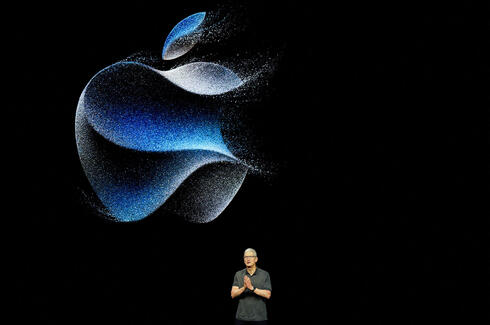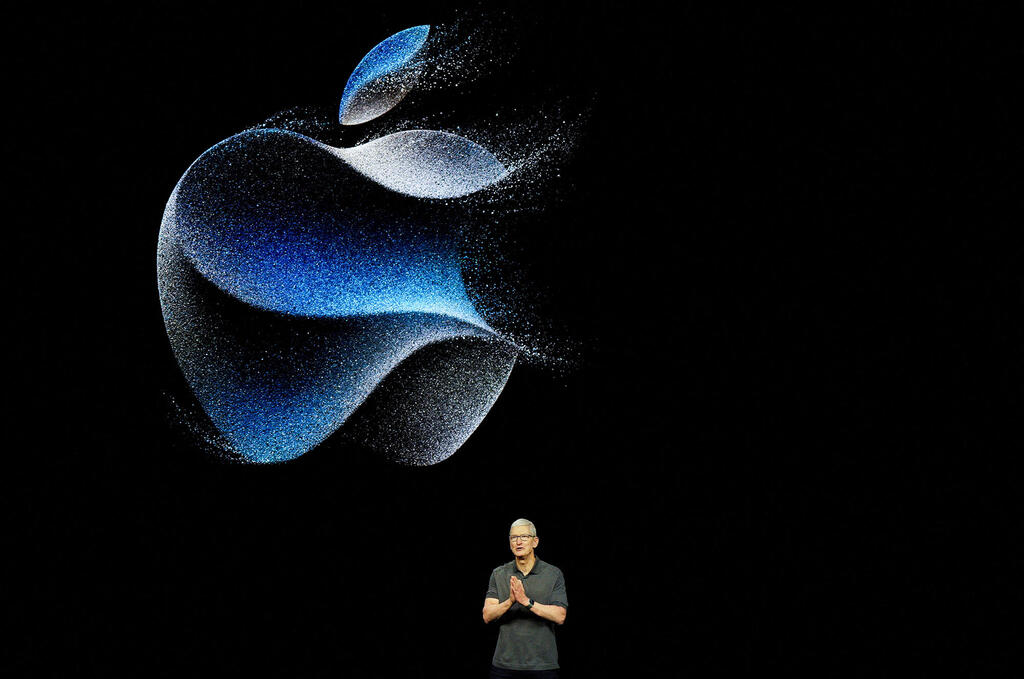
Apple's make-or-break moment: Will AI propel them forward or leave them behind?
The annual WWDC could determine Apple's future in the rapidly evolving AI landscape.
In Apple's long history, several foundational events have reshaped not only the company itself but also the entire world of technology. The launch of the Macintosh in 1984, Steve Jobs' return to the company in 1997, and the launches of the iPod in 2001 and the iPhone in 2007 are just a few of the most prominent examples.
The opening event of Apple's annual developer conference (WWDC), held tonight and focused on the company's artificial intelligence (AI) strategy, has the potential to be just as groundbreaking. While Apple may not present a revolution like the iPhone or the iPod, the company's announcements can determine whether it will join the generative artificial intelligence (GenAI) revolution or be left behind as the rest of the world advances.
Calcalist will be at the developers' conference at Apple headquarters in Cupertino, reporting on the various announcements and their implications for Apple and the world of technology.
It's no longer a secret that the GenAI revolution caught Apple off guard. Despite years of AI activity, including significant hardware developments like a dedicated chip for on-device operations without compromising privacy, Apple was unprepared for the disruption sparked by OpenAI in 2022 with Dall-E and ChatGPT. Consequently, Apple's development activity in the field was insignificant at best.
While rivals like Microsoft, Google, and Meta leveraged existing collaborations or accelerated ongoing developments, Apple had to start almost from scratch. To its credit, Apple did not hesitate. The company began recruiting employees and opened its deep cash reserves to invest in developing GenAI models and products. These efforts, however, were apparently insufficient, as Apple reportedly held talks with Google and OpenAI to launch products based on their models. According to Bloomberg, Apple has already agreed to cooperate with OpenAI and is still in talks with Google.
The developers' conference is the moment when Apple is supposed to present the products of these efforts and collaborations—from a broad strategy to specific products and services that will come to the iPhone and other devices in the coming months. This is the moment when the company will try to convince consumers and investors that it is on par with OpenAI, Google, and others.
A significant part of the opening event will be devoted to artificial intelligence. According to a Bloomberg report, at the center of Apple's strategy is Project Greymatter—a series of tools integrated into core applications such as the Safari browser, Photos, and Notes, as well as features integrated at the operating system level like upgraded push notifications. The capabilities Apple will present are expected to include transcribing voice recordings, editing photos using AI, and leveraging AI for more reliable and faster searches on the device.
Apple will also introduce the ability to create emojis in real time based on messages in an instant message conversation. Another capability is smart summaries based on push notifications, instant messages, web pages, news articles, documents, and other media the user received, consumed, or missed during the day. Apple will also introduce improvements to search in Safari and automatic suggestions in response to emails and instant messages.
The personal assistant Siri is expected to receive a significant upgrade, providing more natural interactions based on Apple's large language model (LLM). This upgrade will allow users to control individual functions in various applications using voice commands. According to Bloomberg, the upgraded Siri will be able to access and control all application capabilities, which required rebuilding the assistant and integrating LLM into its operation. For example, Siri will be able to perform actions such as opening individual documents, moving notes between folders, sending or deleting an email, sending a link in an email, or summarizing articles.
The new system will also use artificial intelligence to analyze how people use their devices to show them suggestions for Siri-based capabilities. Initially, Siri will only be able to execute one command at a time, but later it will be possible to chain commands. For example, Siri could summarize a meeting and send the summary to participants or crop a picture and send the result to a friend. Although Apple is expected to present the upgraded Siri at the conference, its actual launch will not occur until early 2025, according to Bloomberg.
The collaboration with OpenAI will be a central feature of the conference. It is expected to manifest in some combination of ChatGPT or OpenAI's models in Apple's products, similar to what Microsoft is doing with its Copilot product, based on OpenAI's GenAI models.
The new capabilities are expected to operate in a hybrid mode, with certain operations performed locally on the device, leveraging Apple's powerful chips, and more complex tasks performed in the cloud. According to a report by The Information, to ensure user privacy when sending information to the cloud, Apple intends to process it in a black box format, preventing employees from accessing the information.
None of the features Apple is expected to present will represent a leap forward compared to existing products and capabilities in competing devices like Google's Pixel or Samsung's Galaxy. At this stage, Apple is mainly focused on closing gaps. However, Apple has a significant advantage: the vast global distribution of iPhones and other Apple devices. When the new AI capabilities launch, they will be immediately available to hundreds of millions of devices. This move could turn Apple overnight into one of the largest AI companies in the world. The hundreds of millions who will use the products will provide Apple with critical information for developing the next generation of products, potentially giving the company the advantage it needs to move from closing gaps to breaking new ground.
Apple will also introduce innovations unrelated to AI. According to Bloomberg, one will be an upgraded home screen for the iPhone, allowing users to change app icon colors and place them wherever they want on the screen. For example, all social media applications could be set to blue and all financial applications to green, with their placement no longer based on the grid structure that has characterized the iPhone since the first model's launch in 2007. The settings application will also be updated with a cleaner and neater interface and improved search. The control center will have a music widget and improvements in controlling smart home devices. The photo application will also receive an upgraded interface, and the built-in email application is expected to receive some improvements.
Innovations Apple will present at the conference
- Project Greymatter: A series of tools built into the phone and operating system, such as upgraded push notifications, transcription of voice recordings, photo editing using AI, and more.
- Real-Time Emoji Creation: Ability to create emojis in real time based on messages in an instant message conversation.
- Smart Summaries: Summaries based on all the information on the phone, including push notifications, instant messages, web pages, news articles, and documents.
- Automatic Response Suggestions: Automatic suggestions in response to emails and instant messages.
- Significant Siri Upgrade: A significant upgrade to the personal assistant Siri, including the ability to give a sequence of commands.
- ChatGPT Integration: Integration of ChatGPT or a similar chatbot into Apple's products.
- Customized Home Screen: An upgraded home screen for the iPhone that can be customized.














